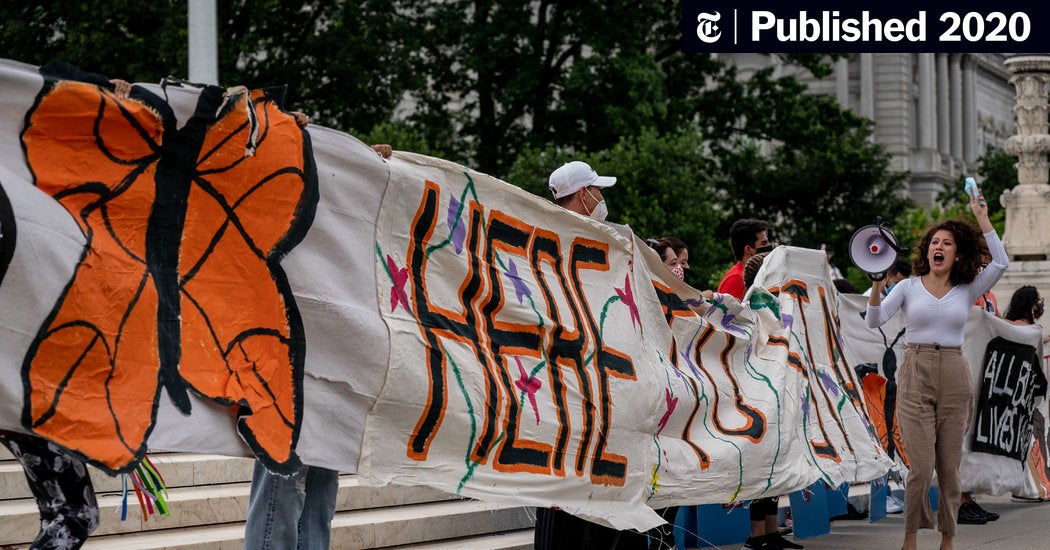New Policy Could Limit Migrants' Right To Challenge Detention Under Trump

Table of Contents
The New Policy's Core Provisions and Their Impact on Migrant Detention
This policy, implemented in [Insert Year and specific name of policy if known], introduced several key provisions that severely limited migrants' avenues for challenging their detention. These changes significantly altered detention procedures and access to courts, effectively restricting legal recourse for those facing deportation.
-
Limited Access to Legal Counsel: The policy included clauses that significantly hindered access to legal counsel, making it harder for detained migrants to receive adequate legal representation. This limitation disproportionately affected those who couldn't afford private attorneys.
-
Restricted Grounds for Challenging Detention: The policy narrowed the grounds upon which migrants could legally challenge their detention. Previously acceptable reasons for challenging detention were often dismissed under the new framework, leaving many with limited options.
-
Impact on Asylum Seekers and Vulnerable Populations: The policy's impact was particularly harsh on asylum seekers and other vulnerable populations, such as unaccompanied minors and victims of trafficking. These individuals, already facing significant trauma and hardship, were further disadvantaged by the restricted access to legal processes.
-
Real-World Examples: [Insert specific examples of cases affected by this policy, citing sources if possible]. These cases illustrate the practical consequences of the policy's restrictions.
Restricting Access to Legal Counsel and its Consequences
The policy's limitation on access to legal counsel represents a significant blow to due process. Denying migrants adequate legal representation undermines their ability to understand their rights, build a defense, and navigate the complex immigration system.
-
Limited Access to Legal Aid: The policy effectively limited the ability of legal aid organizations to provide pro bono services to detained migrants, further exacerbating the problem of unequal access to justice.
-
Understanding Rights: Without proper legal representation, migrants often struggle to comprehend their rights and the procedures involved in their cases, making it nearly impossible to mount an effective defense.
-
Increased Due Process Violations: The lack of legal representation increases the likelihood of due process violations, as detained individuals are less equipped to navigate the legal complexities of their situation.
-
Ethical Implications: The ethical implications of restricting access to legal counsel are profound. It raises questions about the fairness and equity of the immigration system and the government's commitment to upholding human rights.
The Impact on Asylum Seekers and Vulnerable Migrants
The policy's impact on asylum seekers and other vulnerable migrants is particularly troubling. These individuals often face heightened risks of human rights violations and exploitation, making access to legal recourse even more critical.
-
Disproportionate Impact: The policy disproportionately affects vulnerable groups, further marginalizing already at-risk populations.
-
Human Rights Violations: The restrictions on challenging detention increase the potential for human rights abuses, both within detention facilities and during deportation processes.
-
International Law Compliance: The policy's compliance with international human rights law is questionable, potentially violating international treaties and conventions protecting refugees and asylum seekers.
-
Negative Impact Examples: [Insert specific examples of how this policy negatively impacts vulnerable individuals, citing sources if possible. For example, the increased risk of deportation for victims of domestic violence].
Legal Challenges and Potential Outcomes
The new policy has faced significant legal challenges, with various organizations and individuals filing lawsuits to contest its provisions.
-
Ongoing Legal Challenges: Several court cases are currently challenging the legality and constitutionality of the policy's provisions.
-
Potential Outcomes: The potential outcomes of these legal battles are significant, ranging from minor modifications to a complete overturning of the policy.
-
Judicial Role in Protecting Migrant Rights: The judiciary plays a crucial role in protecting the rights of migrants by reviewing and potentially overturning policies that violate due process and human rights.
-
Significant Court Decisions: [Mention any significant court decisions related to this policy, citing sources if possible].
Conclusion
This article highlighted the substantial limitations imposed on migrants' ability to challenge detention under the Trump administration’s policy. The policy's restrictions on legal counsel and its disproportionate impact on vulnerable groups raise serious concerns about due process and human rights. The potential for human rights violations and the lack of fair treatment for asylum seekers and other detained immigrants are major issues demanding attention.
Call to Action: Understanding the implications of this policy is crucial for advocating for the rights of detained immigrants. Stay informed about ongoing legal challenges and support organizations working to protect the rights of migrants facing detention. Continue to learn about the evolving legal landscape surrounding migrant detention and fight for fair treatment of all migrants. Challenging unjust immigration policies requires collective action and a commitment to ensuring all individuals receive due process and fair treatment under the law.

Featured Posts
-
 Competing With Tik Tok Key Takeaways From Instagram Ceos Testimony
May 11, 2025
Competing With Tik Tok Key Takeaways From Instagram Ceos Testimony
May 11, 2025 -
 Stevensons Ipswich Town Outlook Key Developments For The Next Season
May 11, 2025
Stevensons Ipswich Town Outlook Key Developments For The Next Season
May 11, 2025 -
 Schoof Skips Debate Fabers Honours Refusal Sparks Controversy
May 11, 2025
Schoof Skips Debate Fabers Honours Refusal Sparks Controversy
May 11, 2025 -
 Can Ipswich Town Women Maintain Top Spot Against Gwalia
May 11, 2025
Can Ipswich Town Women Maintain Top Spot Against Gwalia
May 11, 2025 -
 Semana Santa O Semana De Turismo En Uruguay La Historia Detras Del Nombre
May 11, 2025
Semana Santa O Semana De Turismo En Uruguay La Historia Detras Del Nombre
May 11, 2025
